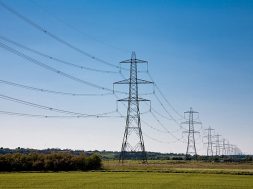
How govt can use battery swapping tech to give fillip to EV industry – EQ Mag Pro

‘Battery as a Service’ business model, based on battery swapping technology, is the new talk of the EV Motown
Finance Minister Nirmala Sitharaman, in the recent budget, announced the formulation of a Battery Swapping Policy and interoperability standards, which is claimed to be one of the remedies of multiple problems posed by the current model. ‘Battery as a Service’ business model, based on battery swapping technology, is the new talk of the EV Motown. Industry players are expecting the government to introduce subsidies, battery standards and GST rates rationalization on swappable battery EVs.
What is ‘Battery as a Service’?
‘Battery as a Service’ model works on the principle of treating the energy stored in the battery as a service on demand. Customers do not need to buy the battery, rather they just subscribe to it. So instead of charging the battery for hours (fixed battery model), the driver can replace the discharged battery with a charged battery at the swap stations and pay for the differential charge used.
The framework of Battery as a Service (BaaS)
It resolves several constraints of the fixed battery model. The upfront cost of EV gets reduced as battery comprises 30-40% of EV cost, making it a friendly option for the Indian middle class. The fuelling downtime reduces from hours to minutes under BaaS model, increasing the driving time of EV drivers.
Parking space is a big issue in urban India. In fixed battery model, the EV has to be parked at the station for hours. By eliminating the need to park the EV at the station, the BaaS model resolves this issue to some extent. The process mimics the fuelling process of ICE vehicles in terms of time and convenience hence swap service providers are partnering with existing fuel pumps, ensuring that drivers don’t have to change their driving behaviour.
Different models in the market
SUN Mobility, under its ‘Energy as a Service’ model, has partnered with OEMs to provide swap service to EV drivers. Under its ‘Mobility as a Service’ model, it gives bundled subscriptions of vehicles and battery to customers. Honda, through its subsidiary Honda Power Pack Energy India, is following a similar model.
Hero- Gogoro JV model, leveraging Gogoro’s expertise in battery swapping in Taiwan and Hero’s market presence in India, is trying to introduce Hero-branded E-2W powered by Gogoro swap stations.
Ola, on the other hand, is planning to capitalize on its existing network of cabs and drivers and create its own ecosystem by providing EV, batteries and swap service on its own.
Challenges and Opportunities
Non-standardized batteries are a significant challenge, due to which OEMs would have to make design modifications. If government standardizes the batteries, it might compromise avenues of innovation in a competitive market.
Higher GST rates and exclusion from FAME 2 subsidy leads to higher TCO (Total Cost of Ownership) for owners of swappable EV. States like Maharashtra and Delhi give lucrative grants to swappable EVs. If formulated comprehensively to tackle demand and supply challenges, government policy can open up myriad opportunities.
Customers perspective
A growing gig economy can be further boosted by helping B2B customers optimize their costs by cutting on their assets and running the batteries in shifts. Similarly, B2C customers can also reduce their upfront costs significantly.
But this comes at the cost of accountability. Since the responsibility of a damaged EV gets split between the service provider and OEM, the customer does not know whom to hold accountable.
Given the diverse lifestyles in India, different business models have an opportunity to try out their luck. Most probably, it is going to be a combination of multiple business models customized to the needs of users. It won’t be a surprise if we are able to order our EV batteries along with our daily grocery very soon.
















